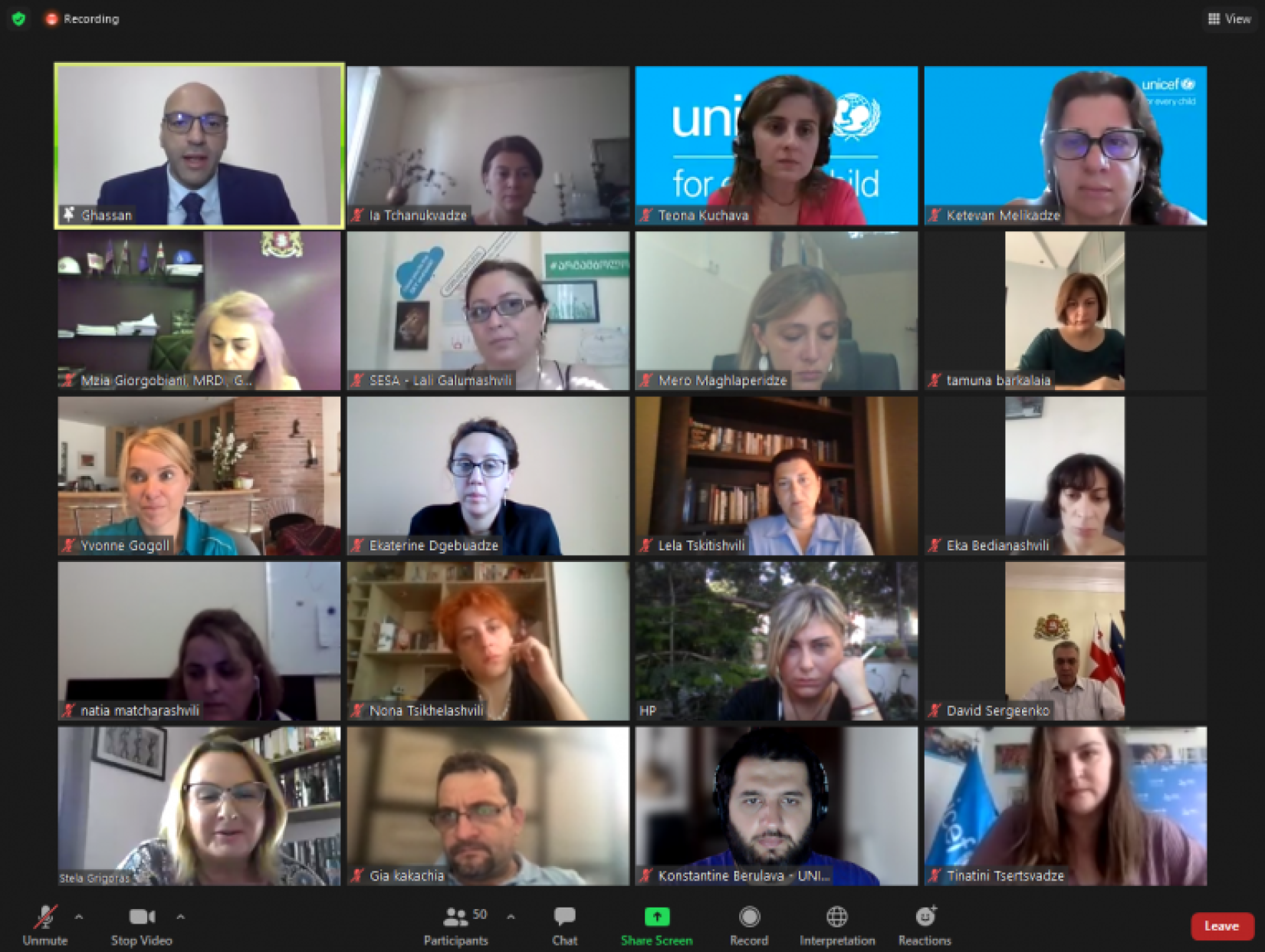UNICEF, EU, support the Government in developing an action plan to move children from institutions to a family environment
19 July 2021
A two-day working meeting to discuss next steps was held.

TBILISI, Georgia, 19–20 July 2021 – UNICEF, in partnership with the Government of Georgia and with the support of the European Union, convened all partners at a two-day working meeting to discuss next steps for how to ensure a family environment for every child still residing in large-scale institutions. The meeting was organized as part of the UNICEF and EU joint project “Strengthening Systems and Services for Child Protection in Georgia”.
The objective of the technical workshop was to discuss the situation, to support the Government in developing the joint strategy and action plan to accelerate deinstitutionalization reform, and to define next steps. Participants in the meeting included Government agencies, civil society organizations, the Public Defender’s Office, independent experts, religious leaders, and international organizations.
The topics discussed at the meeting included: an overview of the deinstitutionalization reform and the situation in existing institutions (managed by the State, non-governmental organizations, local governments, as well as faith-based groups including the ones under the Patriarchate of Georgia and those managed by the Muslim community); the situation in boarding schools under the Ministry of Education and Science; an overview of alternative care (e.g. foster care and small group homes) and family support services; the monitoring of children in institutions and in alternative care; and the main directions of the deinstitutionalization reform and next steps.
"We need to consider the children’s best interests in this process and understand what is the best solution for a particular child." - Ghassan Khalil
“In partnership with the European Union, we stand ready to facilitate a constructive dialogue and to support the government in developing specific plans on how can we provide every child in an institution with a family environment,” says Ghassan Khalil, UNICEF Representative in Georgia. “We need to consider the children’s best interests in this process and understand what is the best solution for a particular child. We are ready to support in the assessment of children in institutions and to support the transition to family-based care. It is essential that as large institutions close down, community-based and family support services are introduced to guarantee further support for children leaving institutional care, [and that] their families and professionals are working with them,” Khalil added.
The Code on the Rights of the Child mandates the State to carry out all necessary legislative and administrative measures which involve the gradual substitution of the residential care of children, including children with disabilities, by foster care and other family and community-based services. For the purpose of deinstitutionalization, the Government of Georgia shall develop and implement a single national strategy and an action plan to ensure that large residential care facilities are gradually closed.
It is essential that the safety, well-being, and development of any child placed in institutions be thoroughly supervised by specialists, and that regular review of the appropriateness of the care arrangement is provided. The Code on the Rights of the Child puts an emphasis on the importance of family support services at the central as well as municipal levels. Strong family support services are required to ensure a family environment for every child, and to avoid the separation of a child from a family. Social welfare staff at central and municipal levels are key to providing quality social services.
Where the preventive and family support services do not prevail, the quality of the alternative care for children should adhere to international and local standards of childcare. The State’s monitoring and support capacity for the alternative care services should be strengthened in line with the CRC, the Code on the Rights of the Child, Guidelines for Alternative Care of Children, and other international and local childcare standards.
UNICEF, in partnership with the EU and USAID, has been supporting the deinstitutionalization process and child welfare reform in Georgia since 2005. Even though the reforms undertaken have had significant impacts on the lives of many children and their families, there are still challenges remaining in the process of deinstitutionalization.





